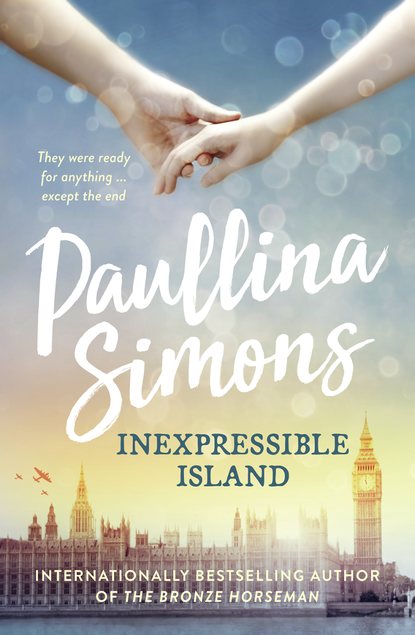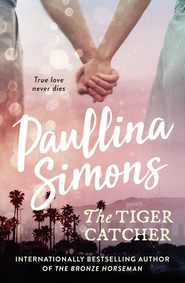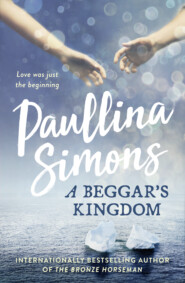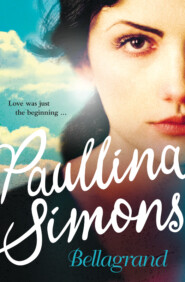По всем вопросам обращайтесь на: info@litportal.ru
(©) 2003-2025.
✖
Inexpressible Island
Автор
Год написания книги
2019
Настройки чтения
Размер шрифта
Высота строк
Поля
For a moment he stands, and she stands, in silence. For a moment it seems as if they both have forgotten their lines. Pulling off his cap, Julian presses it to his chest.
We, the drowned, are rising up for air.
He falls to his knees in front of her, to hide his exhaustion, to show her other things. “What a perfect thing you are, Cecily,” he says, staring up into her baffled face.
The girl looks him over, his suit, his decidedly out-of-time hair, the newsboy at his breast, the dark beard flecked with gray. “Oh, my, Algernon, I see you’ve neglected to shave.”
“Who can shave at a time like this?” Julian says, and the crowd murmurs, hear, hear. “No one is shaving. That’s how you know how shaken the men of London really are.”
Hear, hear, the crowd responds emotionally.
The young woman stares into his bottomless haunted eyes. A breath of animation passes across her face. Coyly she smiles. “You may be unshaven, but aren’t you a little overdressed for the occasion?”
“Why, yes, you’re right, I am a little overdressed,” Julian says. “But I make up for it by being immensely undereducated.”
The people laugh. Julian continues. “Josephine, do you know that this is the last time we will see each other? After this, I must leave you. I will not be staying for the rest of your performance. The dog cart is waiting, my dear. It is so painful parting.”
Confused, the girl mouths Josephine? “I agree, Algernon,” she says. “It is painful to part from people one has known for only a short while. The absence of old friends one can almost tolerate. But even a momentary separation from someone whom one has just met is unendurable.”
He is still on his knees, gazing up at her. She flushes, blushes. He doesn’t. He barely even moves. His eyes roam her face, her body. She is fair of skin and dark of hair. She is doe-eyed, pale-pink-lipped, long-necked, bosomy, beautiful. She is like she always is. Grimy in the Blitz, living underground, washed out in drab dress, her inner self is still a shining city on a hill.
Julian wanted a fairytale ending. Instead he is down on his knees. He stares at her open and unashamed as if he already knows her. He stares at her with eyes that have seen her. “Before I go, dear Cecily,” Julian says, his voice cracking, his gray eyes full, “I hope I don’t offend you when I state openly in front of all these good people that to me in every way you seem to be absolute perfection.”
The audience cheers.
She swallows, stammers. “I think, uh, your frankness does you credit, Algernon.”
“Ever since I first laid my eyes upon your wonderful, incomparable face,” Julian says, “all those years ago, Cecily, in another life, I have dared to love you—wildly, passionately, devotedly, hopelessly.”
The people on the platform are raucous with delight. He can barely be heard above their whistling and applause. His Cecily is frozen.
“Uh—I don’t think you should tell me you love me hopelessly, Algernon.” Her voice is croaky. “Hopelessly doesn’t make much sense, does it?”
“It’s the ideal word.” Dropping his cap to the ground, he rises to his feet.
“My dear romantic boy—”
Julian steps forward. Before she can finish, he takes her into his arms and kisses her, in a prolonged open kiss. He kisses with lips that have kissed her. There is nothing tentative about their embrace.
The crowd goes wild. Her arms rise astonished to his elbows. Her soft warm lips kiss him back.
“Oh my,” she says.
Louder! Louder! the crowd cries.
“There is no other girl for me,” Julian says. “There never was.”
And in reply she says, “Ernest, my love, I know.”
Louder! demands the crowd.
“My dear,” she says, breathless but louder, “please tell me your name is Ernest. It’s always been my dream to marry someone named Ernest. There’s something in that name that inspires absolute confidence.”
“Cecily, are you saying you could not love me if I had some other name?” Tenderly he holds her wrapped head, touching the strands of her hair, pressing her body to him.
“What—what other name?”
“Julian,” he replies.
“You mean Algernon?”
“Do you mean you couldn’t love me if my name was Julian?”
She is still in his arms, but weak in the legs. Her lips are parted. Her breath is shallow.
“I might respect you,” she says, “I might admire you, but I’m afraid that yes, I could not give you my undivided attention …”
“We’ll just see about that, won’t we?” Cupping her face, he tilts his head to her. They kiss again. They kiss full on, and they don’t stop.
Tottering, she finally finds the strength to push him away. It’s impossible to talk above the roar of the crowd. Julian and the girl have given the embattled citizens something better than a play, something better than comedy. They have given them life masquerading as art, life real and poignant, an eerie revelry blooming in the dungeons below the blacked-out city.
“Hey, you, why don’t you get off there,” a tall, unhappy-looking guy calls out, elbowing his way forward. “I mean—get off that door. Two people are not supposed to be on it. It’s not safe. Are you all right, my dove?”
Julian’s arm is still around the dove’s waist. Dove pulls away, brushes Julian off her sweater.
“I’m fine, Finch,” she says. “Finch, this is …”
Julian stands. She knows his name. He’s not going to help her with it.
“Julian?” she says uncertainly.
“Yes. Julian.”
Julian and Finch do not shake hands. Julian brings his right hand behind his back to hide his missing fingers. Before he can ask dove what her actual name is, or what her connection is to the gangly humorless fellow, Finch asks where Julian has come from. He simply might mean tonight, but Julian replies with “Wales!” as confidently as he would say Simi Valley.
“Oh, my goodness,” the girl exclaims. “Finch, another Welshman! I’m gobsmacked. Finch is from a small city called Bangor. Where are you from, Julian?”
But of course Finch would be from damned Bangor. The only place Julian knows besides Bangor and Cardiff, which is too big and easily disproven, is Rhossili, where Edgar Evans hailed from. So that’s what he tells them. Rhossili.
Wouldn’t you know it, Finch’s entire family hailed from Rhossili! For some reason this pleases the girl tremendously, though it doesn’t please either Finch or Julian remotely.
“I haven’t been back for years,” Julian says.
“I should think not,” Finch says, “because you don’t sound at all like a Welshman.” Though Finch is probably thirty, he looks as if he shaves sporadically at best. His short hair is carefully parted to the side, and his triangular brown eyes are intense and hostile.
“Yes, lost my accent—”
“You sound almost American, frankly.”











